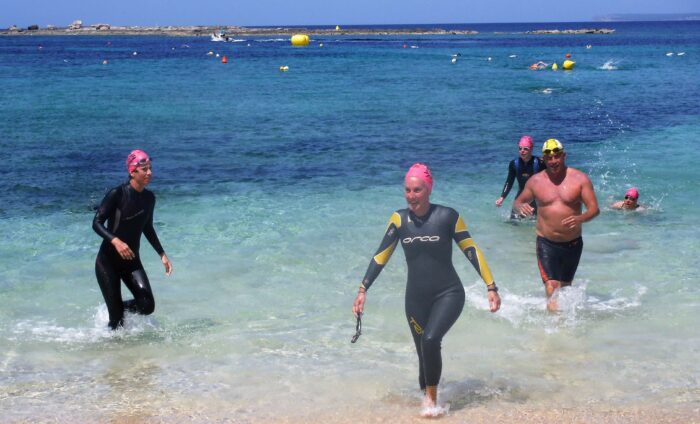
The unexpected and unwanted consequences of FINA’s poorly conceived wetsuit ruling
Wetsuits: will we lose our right to choose in future?
Earlier this year FINA, the world governing body for swimming, introduced a new rule for their open water swimming events. Wetsuits would now be compulsory when the water temperature is less than 18 degrees Celsius and optional when it’s between 18 and 20 degrees. No wetsuits are allowed if the water temperature is above 20 degrees and there has been no change in FINA’s minimum water temperature limit of 16 degrees.
The ruling was introduced to protect swimmers from the risk of hypothermia based on research findings from a study carried out at Portsmouth University. The research showed that heat loss in swimmers is strongly correlated to skin fold thickness, which is a proxy for body fat. Lean swimmers cool down faster and can become hypothermic (defined as a core body temperature of less than 35 degrees) in under two hours. FINA’s flagship open water event is the 10km marathon swim (the distance used in the Olympics) and typically takes elite swimmers around two hours to complete. Many elite swimmers are lean and the ruling is intended to reduce the risk of some of those becoming hypothermic while swimming.
Despite its good intention, there are a number of criticisms of the ruling from the philosophical (cold is part of open water and swimmers should prepare themselves accordingly, just as they train to be able to race for two hours) to the practical (because of the massive speed advantage of wetsuits, the optional range doesn’t make sense). It also makes no allowance for the length of the swim, making wetsuits compulsory in sub 18-degree water even for short swims when the research clearly showed that the drop in body temperature is related to time in the water. The International Triathlon Union recognises different temperature limits for different distance swims, so why can’t FINA?
The ruling was adopted by Swim England and put in place for this year’s open water nationals, where the distances on offer were 1.5km and 3km. At 18.1 degrees, wetsuits were optional but hardly necessary for the length of time most people would be in the water. Still, the majority used them. Why wouldn’t you if swimming in a wetsuit can be 5 to 10 seconds per 100m faster? But it did mean that swimmers had to turn up with both a swimming costume and a wetsuit and a number of traditionalists stayed away. There was a lot of grumbling on Facebook.
However, Swim England has little choice but to follow FINA’s lead. Other race organisers don’t need to.
Or do they?
In the UK, the majority of open water events are put on by organisers that are not affiliated to Swim England. They therefore do not need to follow Swim England’s rules. Some event organisers therefore insist all swimmers wear wetsuits, some make it optional and others don’t allow them.
But here’s the problem. I was talking to an event organiser recently who has put on a race annually for six or seven years. Wetsuits have always been recommended, but optional. This year the policy was changed to wetsuit compulsory. Why? Because the safety team insisted. They were concerned that if someone swimming without a wetsuit got into difficulties and the case went to court, they could be found negligent for allowing someone to swim without a wetsuit in water of less than 18 degrees when that is the temperature defined by FINA as the safe minimum.
As far as I know, this has never been tested in court and I hope it never needs to be, but if it is, I hope the court would look at the actual safety procedures the organiser has put in place regardless of wetsuit policy rather than be guided by an ill-conceived rule designed for elite swimmers competing over longer distances.
The options for taking part in competitive non-wetsuit open water races have already been decreased by FINA’s rules. It would be a massive blow to swimming if we now lose the option to take part in other open water events without the encumbrance of a wetsuit because organisers fear a theoretical legal consequence. We don’t yet know whether other event organisers share these concerns but we’d like to hear from them if any do. Also, if there are any legal experts out there we’d be happy to hear your opinion. Are event organisers at risk if they allow swimmers to go without a wetsuit in water of less than 18 degrees?






